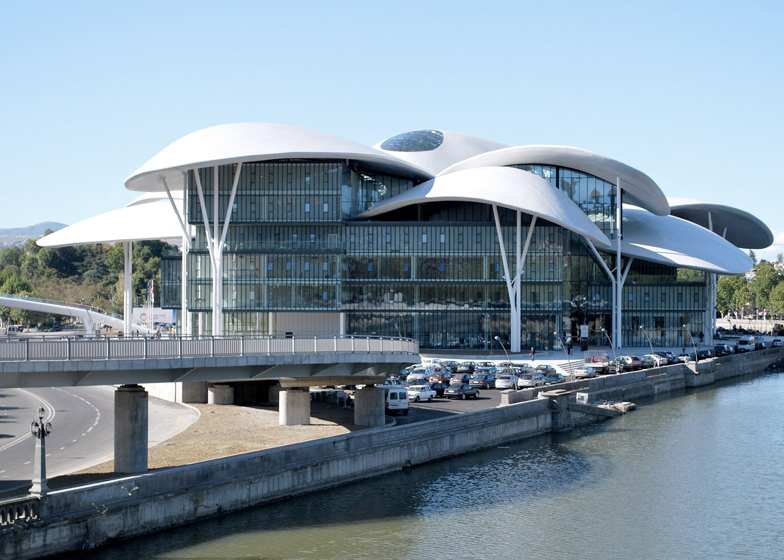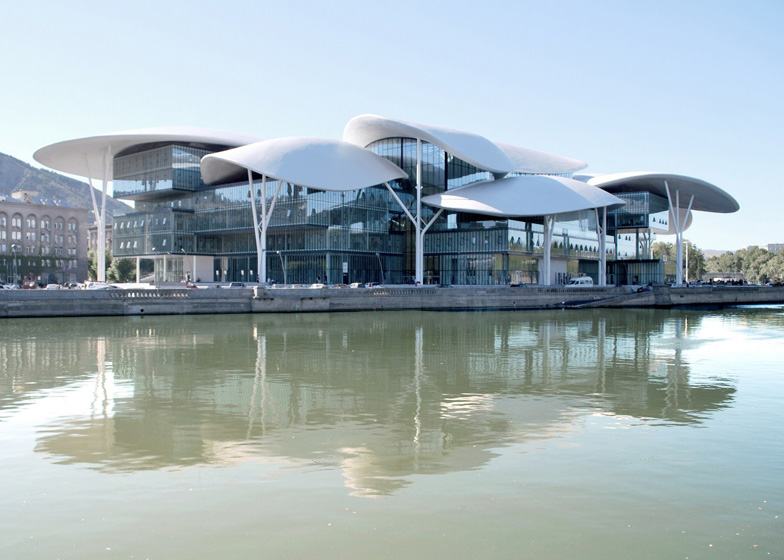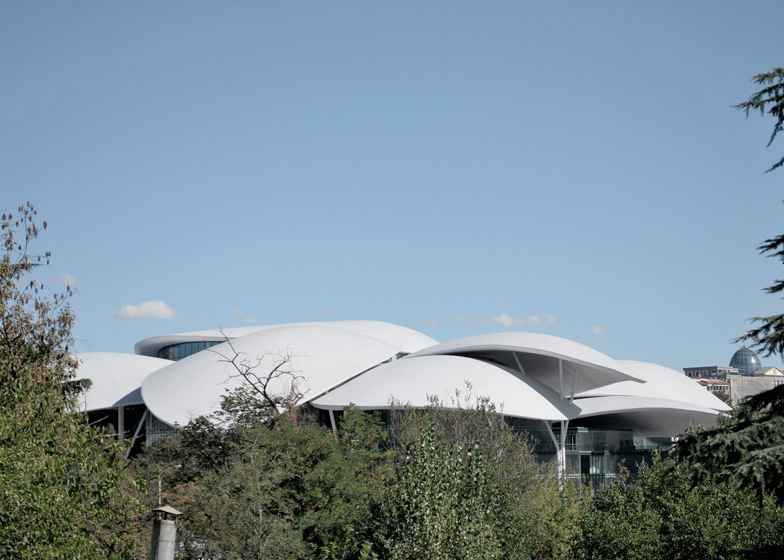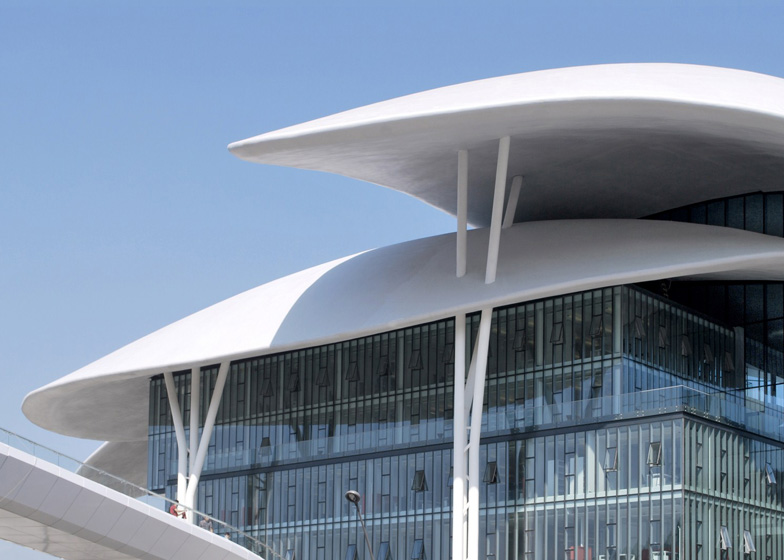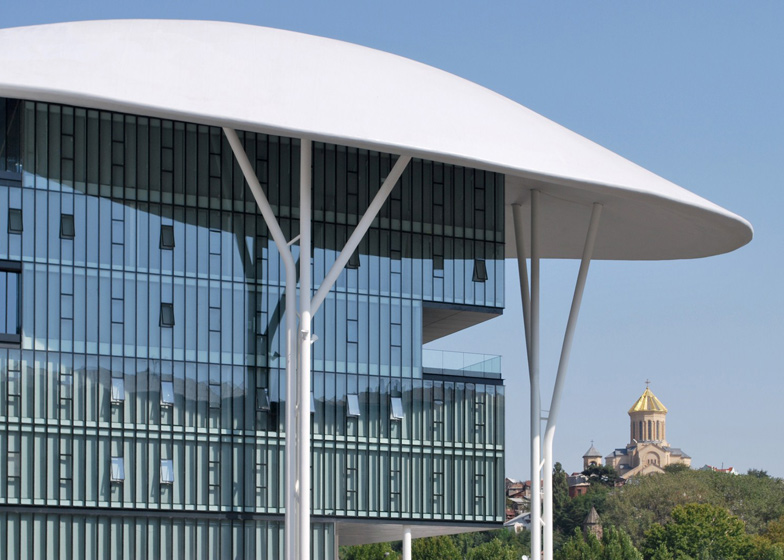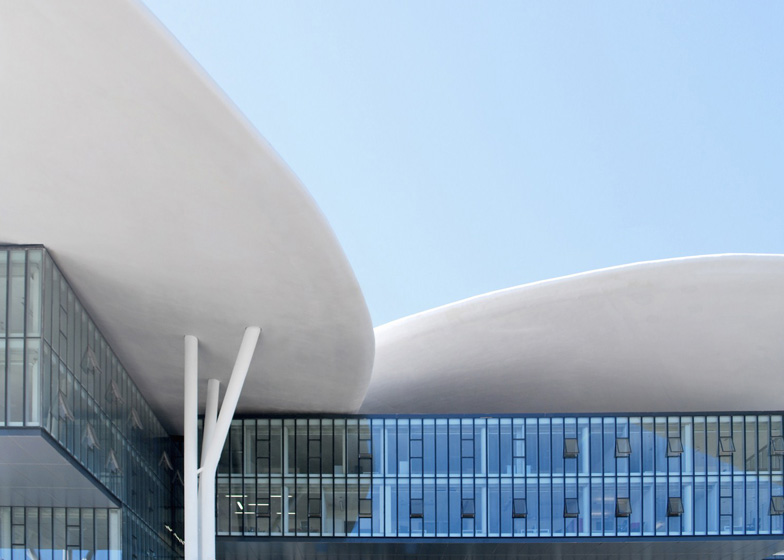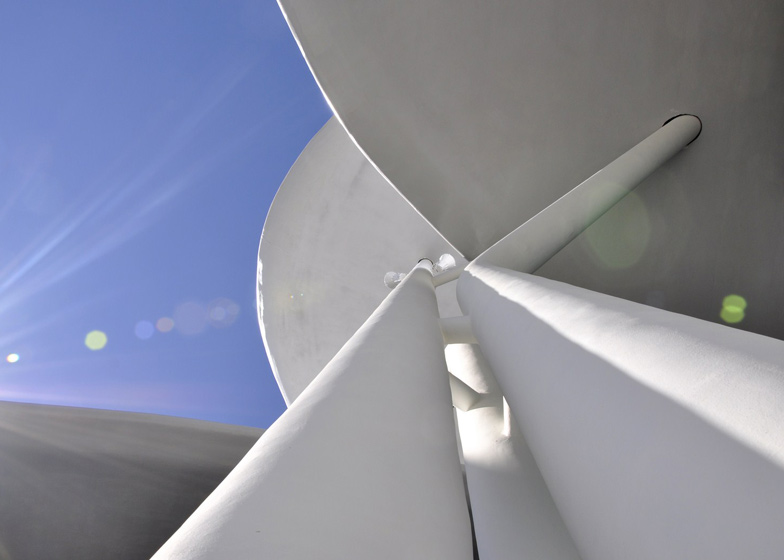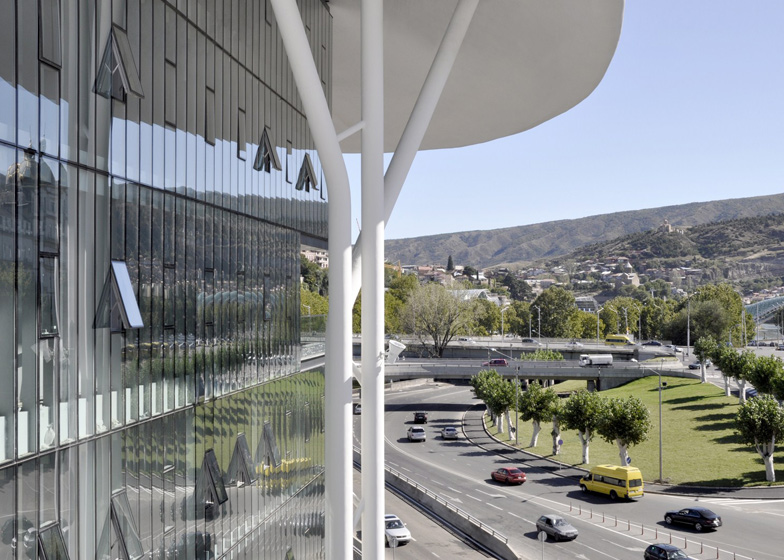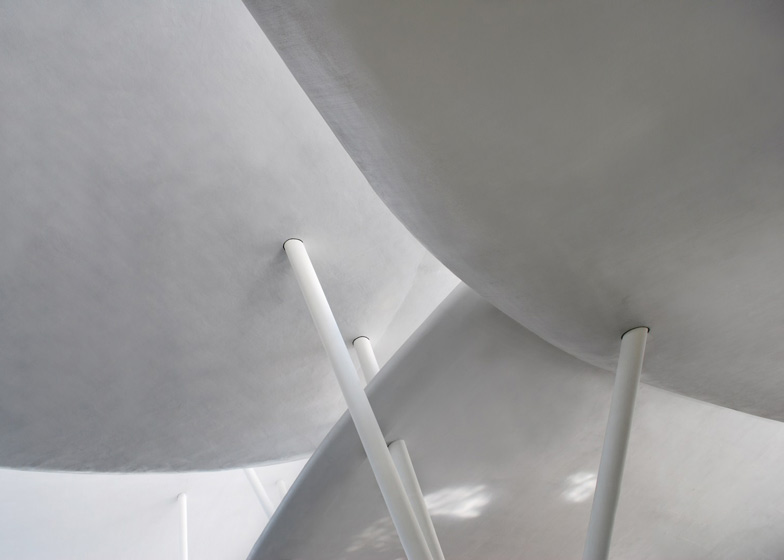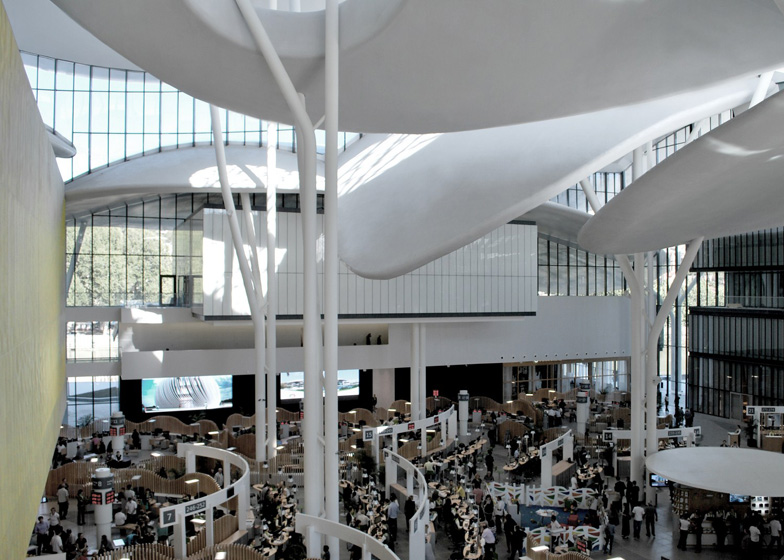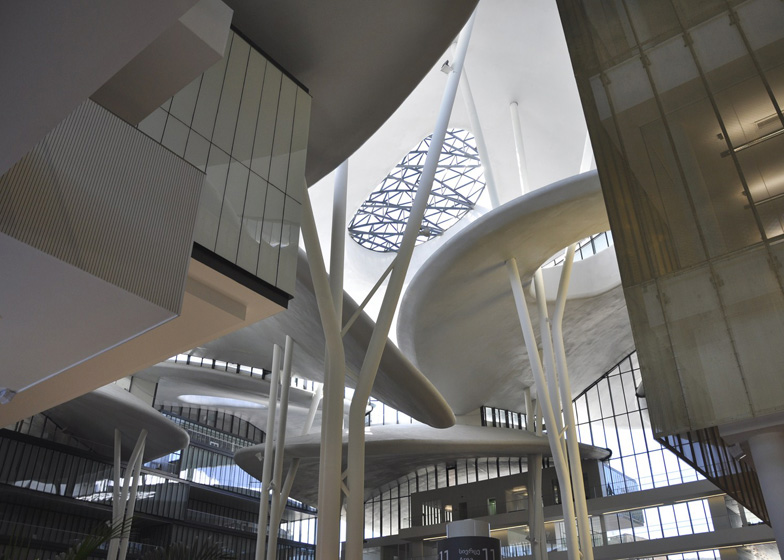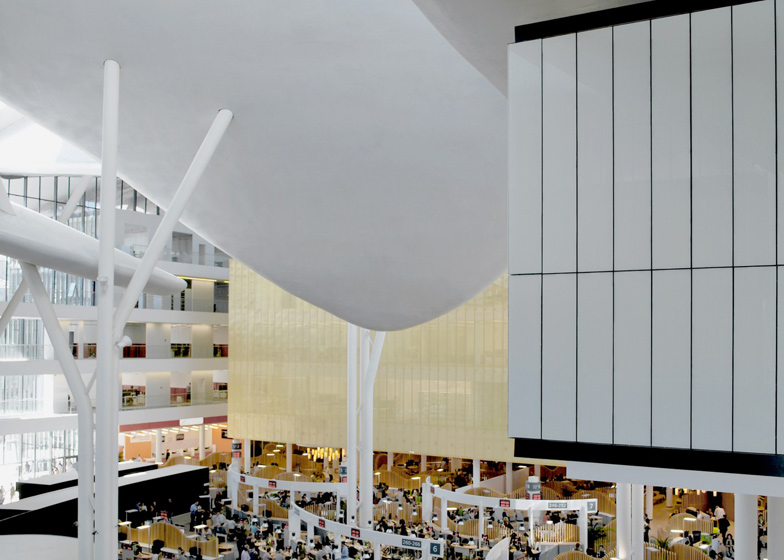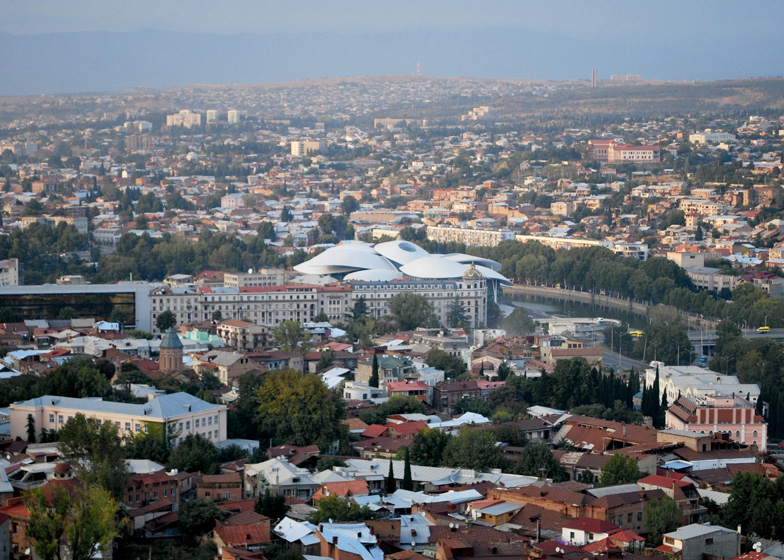Towering steel mushrooms create a layered canopy over the roof of this glazed office block in Tbilisi, Georgia, by Italian architects Massimiliano and Doriana Fuksas (+ slideshow).
Named the Tbilisi Public Service Hall, the building houses an assortment of government organisations that include the National Bank of Georgia, the Ministry of Energy and the Civil and National Registry Agency.
Seven overlapping glass blocks surround a central service hall where customers can obtain passports, marriage registration, and other permits and documents.
There's no additional roof over this hall, creating a 35-metre-high space beneath the shelter of canopy structures.
The architects compare these structures to trees, and refer to their curved uppers as "petals" or "leaves".
Different departments are contained inside each of the seven perimeter blocks and a series of bridges connect them at the upper levels.
This building is one of a number of new infrastructure projects we've featured in Georgia in recent months - see more stories about Georgia.
Other projects we've published by Massimiliano and Doriana Fuksas include an Armani store in New York and the bright red Zenith music hall in France - see more stories about Studio Fuksas.
Photography is by Studio Fuksas.
Here's a project description from Studio Fuksas:
Tbilisi Public Service Hall, Tbilisi, Georgia, 2010-2012
The Tbilisi Public Service Hall is situated in the central area of the city and it overlooks the Kura river.
The building is made up of 7 volumes that contain offices (each volume is made up of 4 floors located on different levels). These volumes are placed around a "central public square", which is the core of the project, where there is the front office services. Offices are connected to each other by internal footbridges that stretches on different levels.
Volumes and the central public space are towered above by 11 big "petals" that are independent both formally and structurally from the rest of the building. Three of those big petals covers the central space. The petals, different for their geometry and dimension, reaches almost 35 meters and they are supported by a structure of steel pillars with a tree shape, visible, as well as the petals, externally and internally from the building.
Among the petals, that are at different levels, are the glass facades. The main characteristic of these facades is that these have been released completely from the structure of the petals, allowing relative movements between the facade and the spatial network structure of coverage. This decision was taken to prevent that any movement of the cover, mainly due to oscillations for snow loads, wind or thermal expansion, can lead to the crisis of the glass.
The Tbilisi Public Service Hall includes: the National Bank of Georgia, the Minister of Energy, the Civil and National Registry.
Project: Tbilisi Public Service Hall
Sirre: Tbilisi, Georgia
Address: Sanapiro Street 2
Period: 2010-2012
Client: LEPL Civil Registry Agency – Giorgi Vashadze / LEPL National Public Registry Agency
Architects: Massimiliano and Doriana Fuksas
Project leader: Emiliano Scotti
Project tem: Riccardo Ferrari, Matteo Malatesta
Model makers: Nicola Cabiati
Surface:
Superficie totale costruita: 42.000 sq m
Volume total construction: 265.000 cubic metres
Main hall surface: 4 385 sq m
“Leaves” surface: 24 800 sq m
Structural glass (enclosure): 2 390 sq m
Facade: 11 800 sq m
Parking Plots: 838 (426 coperti)
Engineering: Studio Sarti, AI Engineering
General contractor: Huachuan Georgia Company LTD
Program:
National Bank of Georgia
LEPL Civil Registry Agency
LEPL National Public Registry Agency
Ministry of Energy
Civil and National Registry Agency: 280 public desk
Press Room: 290 MQ (150 seats) + Foyer 100 m²
Retails and Facilities: 400 m²
Terraces: 1860 m²
Material:
Structure: reinforced concrete and steel
“Leaves” structure: tridimensional steel reticular
“Leaves” coating: glass fiber and epodossic resine
Facades: structural glass and cellular glass

